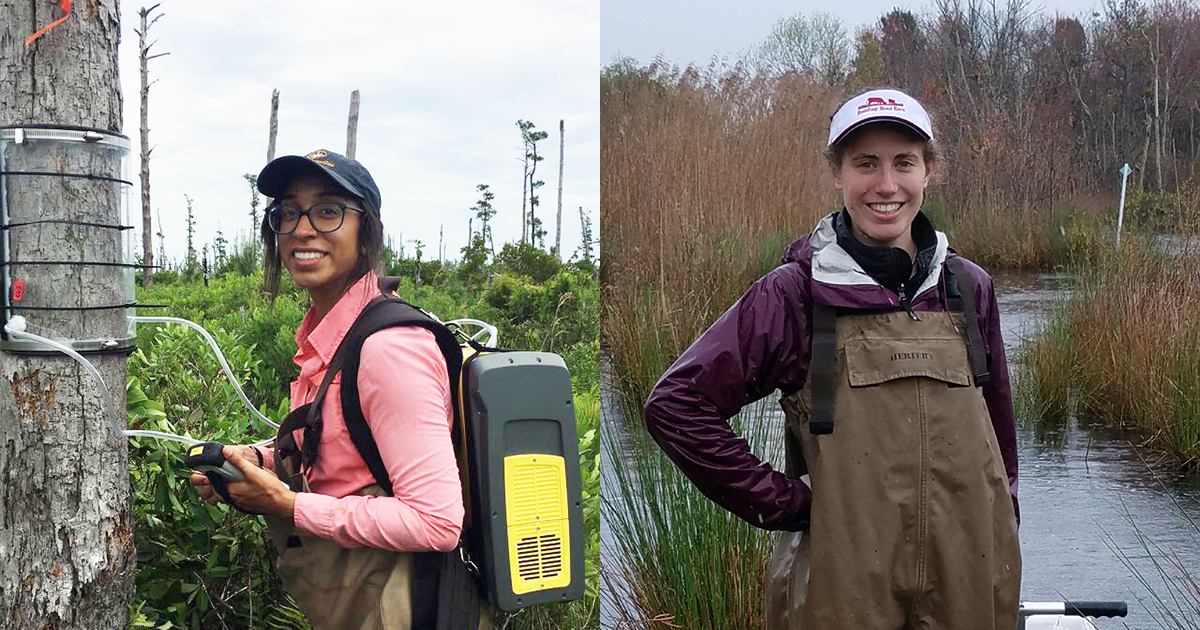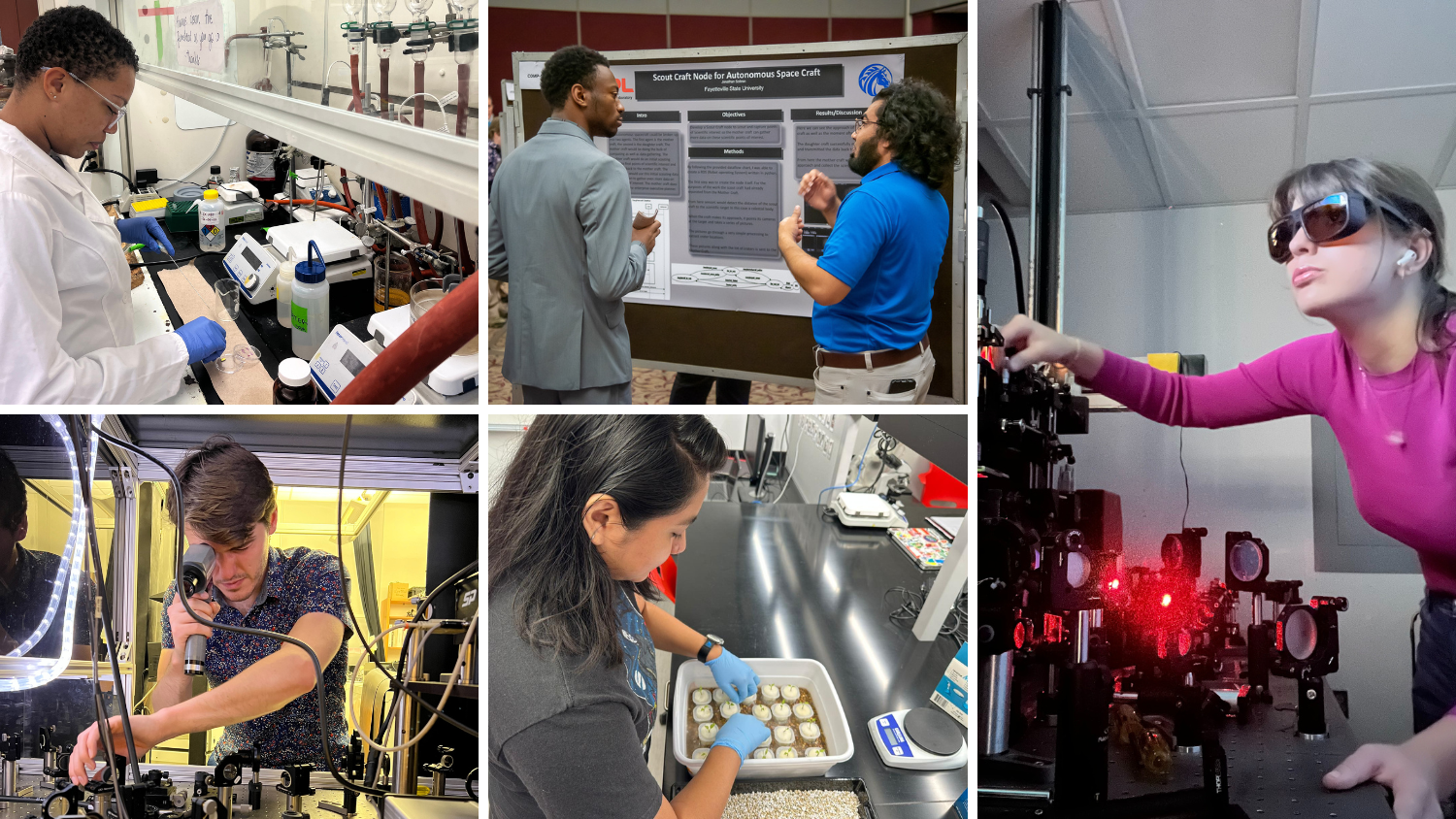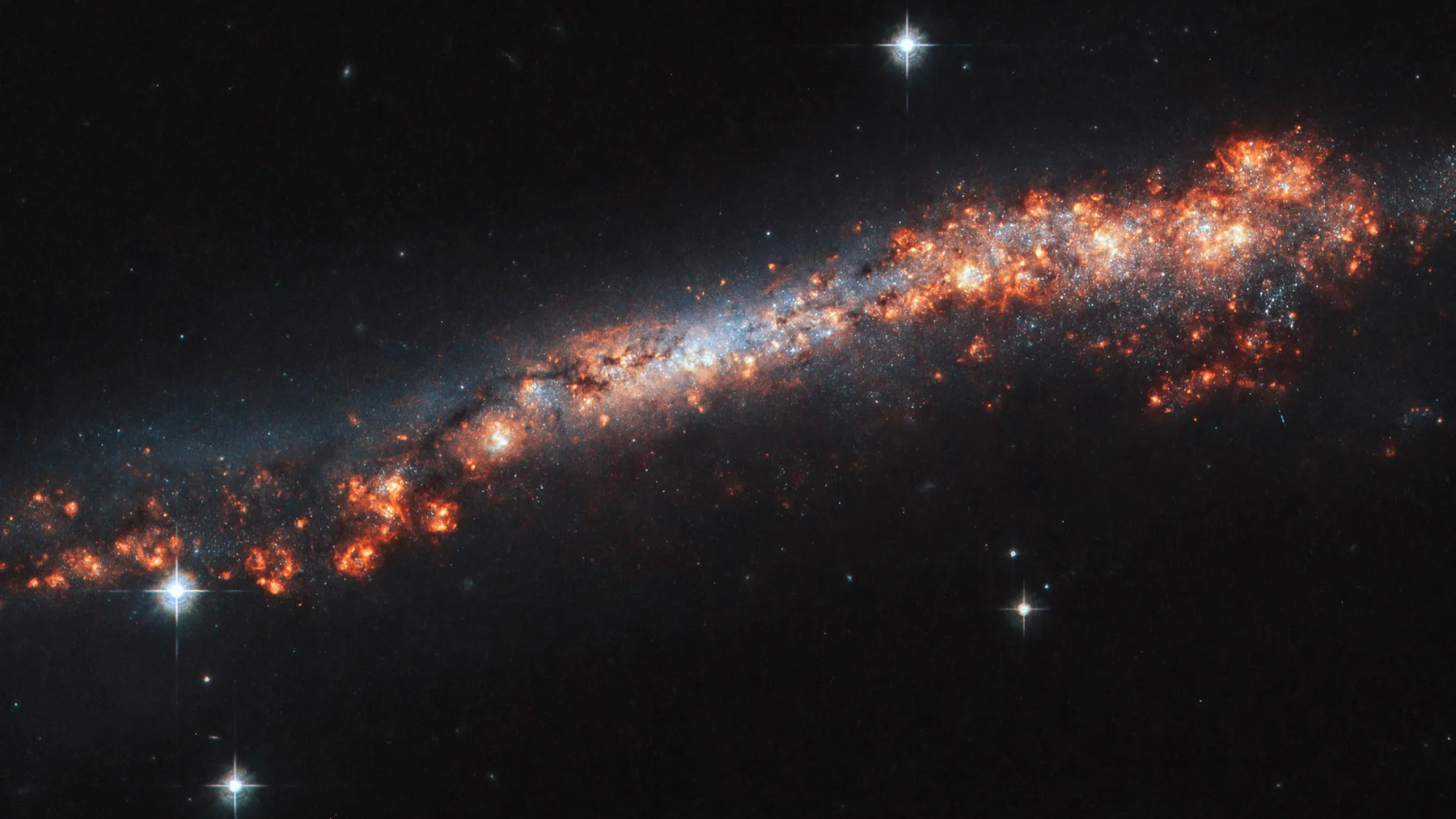NC Sea Grant – NC Space Grant 2019 Fellows Selected

The 2019 North Carolina Sea Grant – NC Space Grant Graduate Research Fellows will identify early warning signs of “ghost forests” forming, using drones and remote sensing technology. Melinda Martinez of North Carolina State University and Emily Ury of Duke University will determine when saltwater incursion has begun killing healthy wetlands, a process that leaves behind ghostly stands of dead trees.
Martinez will continue her current Ph.D. research in greenhouse gases released by decomposing trees in ghost forests. Ury will try to discern and measure signs of salt stress in coastal plants during the formation of ghost forests.
“It is interesting this year that both fellows proposed to use drones in their research. Other years, we have seen different technologies used, such as remote sensing and satellite images,” notes Susan White, executive director of North Carolina’s Sea Grant and Space Grant programs. “We hope the fellows’ work will encourage more students to utilize these and other cutting-edge technologies in their inquiries into issues affecting the coast.”

Martinez is working toward a doctorate in forestry with a minor in remote sensing in the Department of Forestry and Natural Resources at NC State, which positions her to use remote-sensing technologies to study coastal forested wetlands. During her fellowship, she will measure the volume of greenhouse gases released by standing dead trees and compare that to amounts released by soils in forested wetlands near the coast. She then will use the information to map out how much gas is being released overall for ghost forests along the Albemarle-Pamlico Peninsula.
This research will become part of Martinez’s dissertation, which focuses on various aspects of ghost forests along the peninsula, including determining early warning signs of transitions from forest to marsh. She is excited for the opportunity to use the fellowship to collect more data in the summer of 2019, and to see where that data leads next. Marcelo Ardon of NC State is advising her research.
Born and raised in Dallas, Martinez earned a bachelor’s degree in marine and freshwater biology from the University of Texas at Austin and a master’s degree in environmental science from Texas A&M University – Corpus Christi. After finishing her degree, she hopes to join forces with a nonprofit or government agency to continue researching coastal wetlands.

Emily Ury’s fellowship will examine how the introduction of marine salts due to sea level rise affects plants that are accustomed to growing in freshwater conditions. She hopes her research will aid in determining if plants show early signs of stress from salt exposure — and if those signs can be distinguished from other stressors, such as flooding.
Ury is working toward a doctorate in ecology from Duke University. Professors Justin Wright, a plant community ecologist, and Emily Bernhardt, a biogeochemist, are co-advising her work.
As a fellow, Ury will use drones and satellite imagery to look at forests in transition from healthy wetland system to ghost forest. What she learns from this field work could eventually improve regional models of the vulnerability of forests to sea level rise, and even potentially model how these changes in forests could affect global carbon cycles.
Ury is enthusiastic about the field work for her fellowship project. “It’s hard not to be excited about using drones,” she says. “They’re a very fun type of equipment to work with and they unlock so much potential for research that has not previously been used. It’s exciting to be able to integrate what we see on the ground with what we can see from above.”
Born in Baltimore and raised in Western Massachusetts, Ury holds a bachelor’s degree in chemistry and environmental studies from Williams College in Williamstown, Massachusetts and a master’s from The Yale School of Forestry. She aspires to a career in research with applications for land-use management and leads to a deeper understanding of how humans impact the environment, both negatively and positively.
For more information on this and other opportunities from NC Space Grant and North Carolina Sea Grant, visit the NC Space Grant higher-education opportunities page and the North Carolina Sea Grant fellowships page.
To stay up to date with Martinez’s fellowship research, follow her on Twitter at @wetland_melinda. Keep up with Emily Ury’s work on Twitter at @emilyury and on her personal website, which showcases her research and outreach activities.
- Categories:


